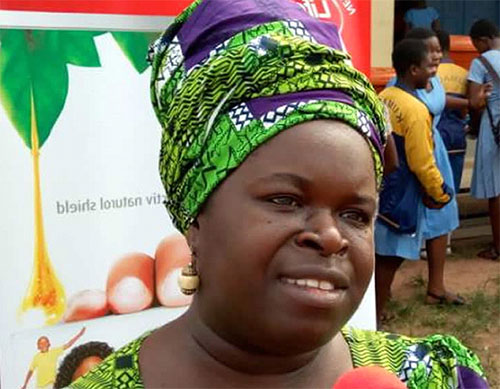Gladys Amoah, MD, Unilever Ghana
UNILEVER GHANA Limited (UGL) says it has decided to reset its levels of stock held by distributors over the coming months.
According to the company, in its disclosure on the outlook for the second half of this year, signed by Gladys Amoah, managing director, the economic climate in the country has seen a slow-down – especially in trading conditions particularly – after the banking sector reforms which began in the last quarter of last year.
“This, in conjunction with a more subdued consumer demand, has resulted in many distributors finding it increasingly difficult trading. This has resulted in unusually high inventory levels in Unilever Ghana Limited (UGL)’s extended distribution network.”
It added “Consequently, UGL has decided to reset the levels of stock held by distributors over the coming months. This will impact business performance in the third quarter of 2019 and will mean that full year turnover for 2019 will be considerably lower than planned and also in comparison with the prior year. We expect the impact on performance to be short term.”
For the 2018 financial year, the company recorded revenue of GH¢632 million compared to GH¢575 million in the preceding year, representing a revenue growth of 10 per cent.
Board Chairman of Unilever, Edward Effah, during the company’s 45th Annual General Meeting (AGM) in Accra, attributed the growth in revenue to the increase in the sale of the company’s products.
He said the company recorded an operating profit before tax of GH¢250 million, representing a 283 percentage increase over that of 2017 (GH¢65 million).
“Profit after tax therefore improved by 296 per cent to GH¢191 million compared to GH¢48 million in 2017,” he said.
He, therefore, indicated that a dividend payout of GH¢0.80p per share from the 2018 profits amounting to a total of GH¢50,000 had been proposed by the board of directors.
Ms Amoah, at that meeting, said Unilever extended coverage to over 64,000 customers directly through its partnership with key distributors.
“Over 110 youth have been employed through the tricycle salesman deployment project in southern Ghana and an additional 100 women have been empowered economically under the Shakti programme in the north as well,” she said.
Mrs. Amoah, however, noted that cash and cash equivalent was in the deficit of GH¢65.5 million in 2018 compared to GH¢53.18 million in 2017.
That, according to her, was largely due to the challenging environment during the period under review.
BY Samuel Boadi


